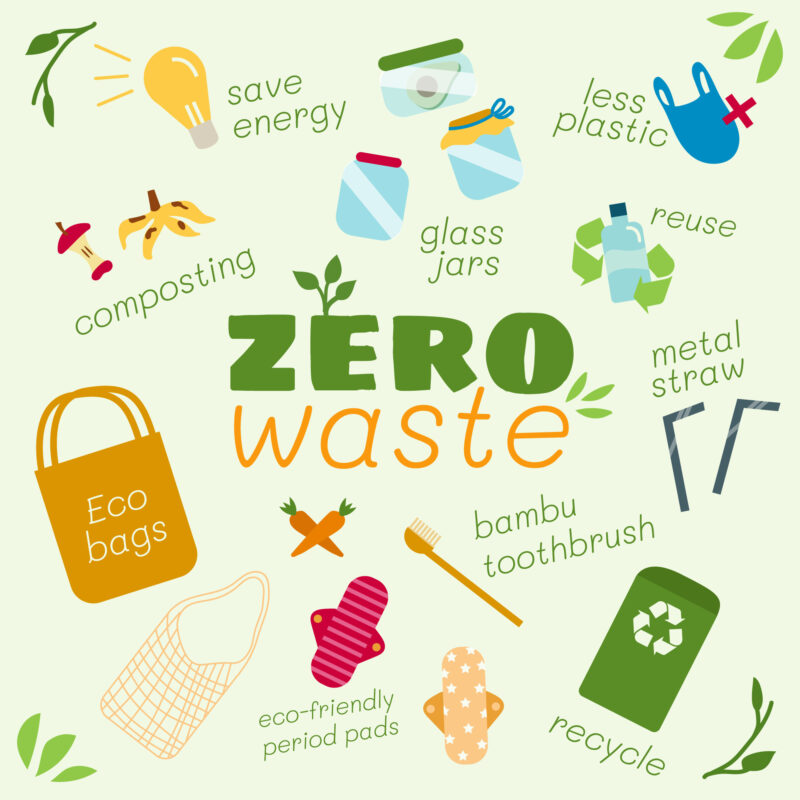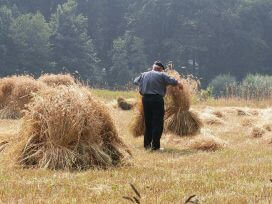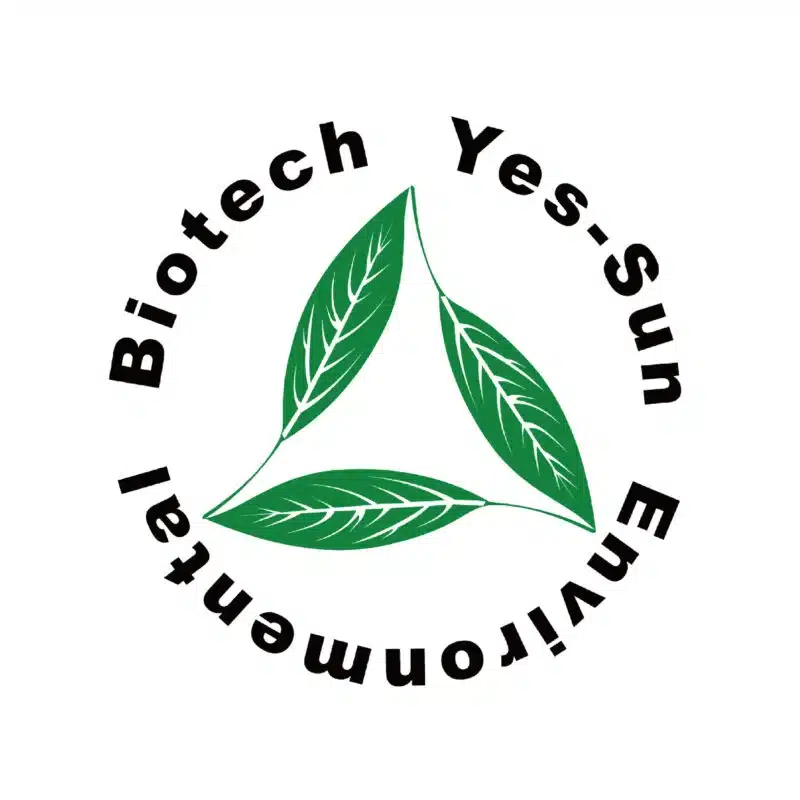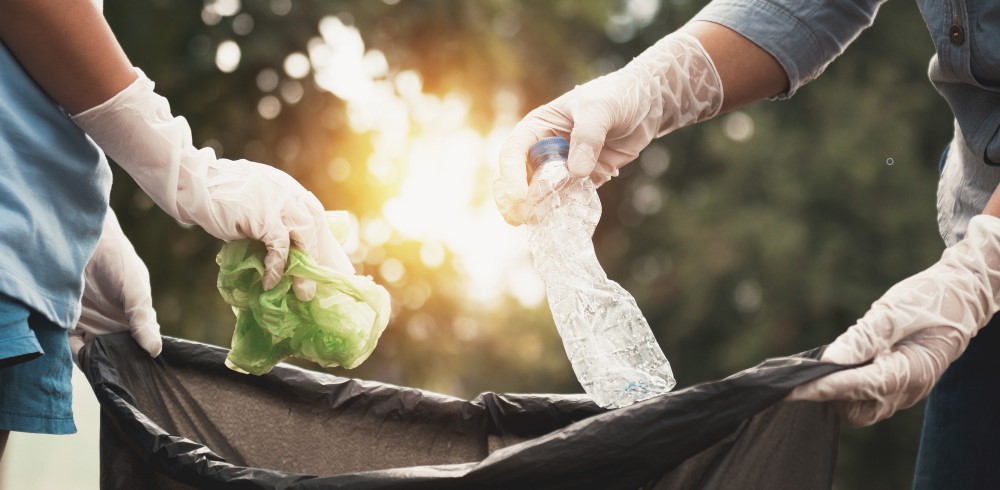
Organic Waste Recycling
Many countries are currently grappling with the issue of waste disposal, particularly as the technology industry experiences rapid growth and the rate of electronic product replacement increases. The ever-expanding array of waste has emerged as one of the foremost challenges in the realm of environmental protection. In recent years, as environmental awareness has heightened and advancements in organic waste recycling technology have been made, the concept of material recycling has become widely acknowledged within the environmental sector. Organic waste is now recognized for its potential in developing urban mineral resources and other valuable resources, highlighting the importance of harnessing its potential and incorporating it into sustainable resource management practices.
What is Organic Waste (recycling)?
Organic wastes have different interpretations in different areas:
- In the field of chemistry, the term “organic” refers to compounds that contain carbon, hydrogen, and often oxygen, as well as other elements.
- In the fields of biology and environment, “organic” has a broader meaning. It refers to materials that originate from living organisms, including animals, plants, and microorganisms.
- The term “organic waste” is used to describe a wide range of decomposable materials that have biological origins.
Organic waste types:
In Taiwan, organic waste is categorized into three main groups: industrial organic waste, agricultural organic waste, and household organic waste. The distribution of these waste types is approximately 10% for household, 40% for industrial, and 50% for agriculture.
- Industrial organic waste includes waste generated from various industries such as food processing, breweries, slaughterhouses, restaurants, markets, hospitals, hotels, raw materials for medicine production, papermaking, sludge, and tanneries.
- Agricultural organic waste comprises waste generated from farming, forestry, fishing, gardening, fruits and vegetables, mushrooms, farms, forests, livestock farms, fish cultivation facilities, pig and cow farms, and other related agricultural activities.
- Household organic waste mainly consists of food waste from kitchens in various settings, including households, institutions, the military, schools, prisons, and other similar establishments.
These categorizations help in better understanding and managing organic waste in Taiwan, facilitating appropriate waste management strategies for each sector.
The Latest Organic Waste Recycling & Treatment Technology
There are many organic wastes that come from agricultural byproducts, agricultural byproducts, solid waste from livestock, and municipal waste,However, these organic wastes are often treated as rubbish and sent to landfills or dumped at will , Resulting in the following two points :
Processing difficulties
In areas with high population densities and organic waste with high water content, finding suitable waste disposal methods can be challenging. Traditional methods such as landfilling may pose the risk of leakage, potentially contaminating the surrounding environment. Additionally, incineration requires higher energy consumption and may lead to a shorter lifespan of the incinerator due to the challenges posed by high moisture content in organic waste.
Causing pollution
Untreated organic waste, particularly pig manure water from upstream areas, is a significant contributor to river pollution. This pollution poses a severe threat to the quality of water that people rely on for their livelihoods. The large volume of untreated organic waste generated, if left unaddressed, can lead to substantial and direct as well as indirect pollution.
Organic Waste Treatment Technology Are Six Steps in the Approach
Input & shattering devise
Function:U-shaped spiral unit of the machine transports feed stock to a shattering devise。
Remarks:The rigid materials of the organic waste can be shattered directly without any pre-treatment/segregation. Precise and high performance of the shattering device converts the hard materials into slurry without any addition of water. Total active surface area of the shattered organic waste is increased several hundred folds.
Transporting & decomposing system
Function:The shattered organic waste residues are transported to a decomposing system。
Remarks:Addition of Composting-free microbial enzymes and supplementary materials shortens the processing time. Subsequently, residues are heated to 100℃ for sterilization. The product following this process can be readily used as organic fertilizer.
Compressed air exhaust system
Function:Compressed air exhaust system evaporates excess water/moisture from the organic waste residues having higher moisture/water content.
Remarks:This system also shortens the total time required for drying the product. The processed water is non-polluting potable water and meets environmental safety standards.
Heating system
Function:Specially designed heating and circulatory system is highly efficient, safe and durable. This system uses low cost recycled heating oil. This has numerous advantages such as, power-saving, rapid heating, sustained oil life, nil secondary pollution and meets environmental safety standards.
Remarks:This system also has numerous advantages such as electricity saving, small temperature gaps, fast heating, sustained oil life, no secondary pollution, and conforms to all environmental requirements.
Programmable control and safety systems
Function:The multiple processes of the system are automated, controlled and programmable by user friendly software. All parts of the equipment are strong, sturdy, durable and are meets higher safety standards while all other accessories and machine parts confirms with VDE, GS, UL, CE standards.
Remarks:Mechanical control interfaces are also available.
Recycled End Product
Function:The end product of this process is high quality soil conditioner or bioactive organic fertilizer popularly called as “environmental fertilizer.” It is suitable for improving soil health and increasing nutrient absorption capacity of crops.
Remarks:The end products of this process are of high quality soil conditioner or bioactive organic fertilizer and known as “environmental fertilizer.” It is suitable for soil improvement and for improving nutrient absorption of crops. When applied to soil, the fertilization efficiency of soil for crops can be dramatically improved.

Organic Waste Recycling in Various Countries
Organic waste recycling plays a crucial role in reducing environmental pollution and promoting sustainable agriculture. The production of organic fertilizer from recycled waste not only addresses the issue of chemical fertilizer and pesticide residues in crops but also offers economic and environmental benefits.
France
France has made significant advancements in waste disposal through initiatives like household waste classification, installation of recycling bins in public areas to reduce packaging waste, and improvements in waste incineration technology. These efforts have yielded positive outcomes, and further implementation of waste recycling policies will build on this success.
Germany
In Germany, municipal solid waste is primarily treated through incineration, landfilling, and composting. Approximately 10% of perishable organic waste undergoes high-temperature fermentation to produce compost for agricultural use.
Singapore
Singapore, facing limited land resources, has adopted four key strategies for waste disposal. These include source reduction, strengthening recycling efforts, developing incineration power generation, and minimizing the amount of waste sent to landfills.
Norway
Norway established a Biogas plant in its capital city in 2009, capable of processing 50,000 tons of kitchen waste annually. This facility converts kitchen waste into fuel and organic fertilizer. The produced fuel is currently sufficient to power 135 public buses in the capital, while the resulting fertilizer can supply approximately 100 medium-sized farms.



 中文 (台灣)
中文 (台灣) Bahasa Indonesia
Bahasa Indonesia Tiếng Việt
Tiếng Việt Bahasa Melayu
Bahasa Melayu Français
Français Español
Español Português
Português